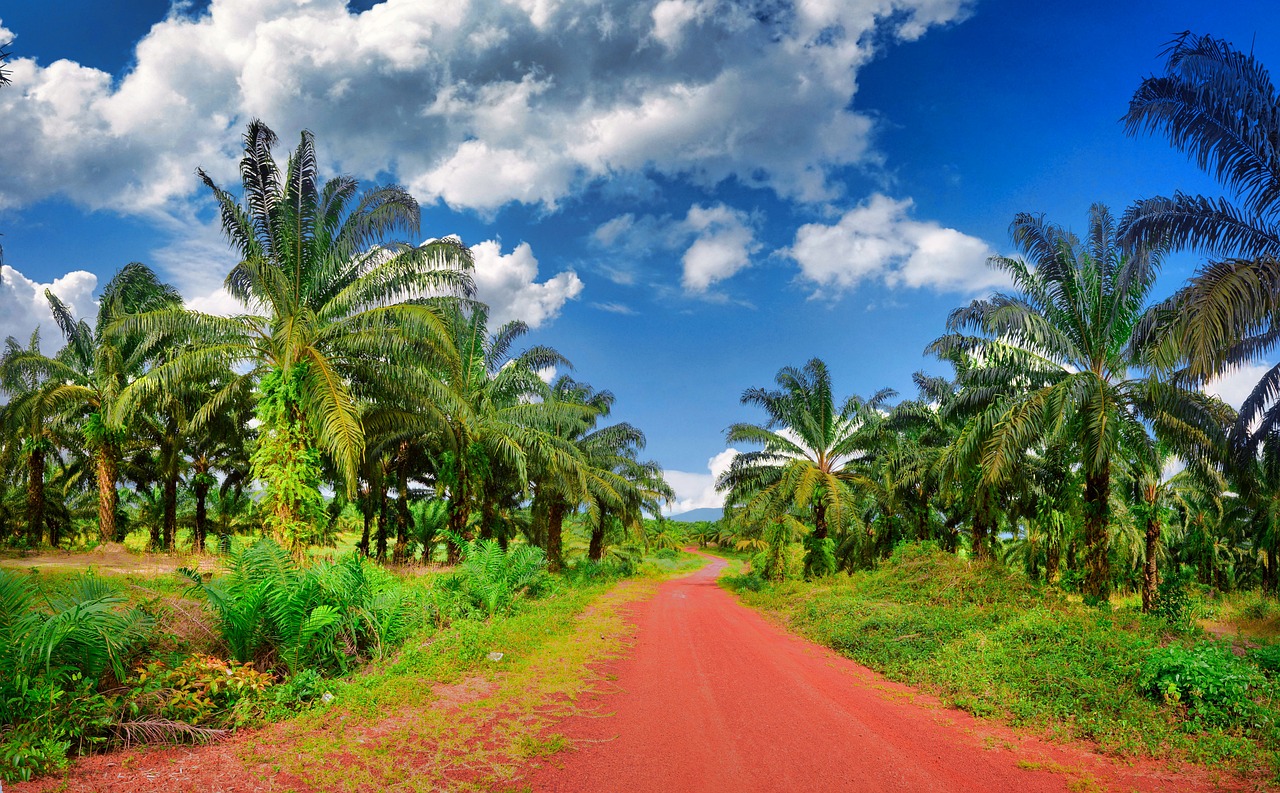The production of palm oil, as well as beef, soy and paper/wood products, is driving the deforestation of tropical rainforests. Borneo is a particularly affected area, with about one third of the island’s forest coverage lost between 1973 and 2010.
Palm oil plantations have lower biodiversity levels than forested areas as many species are unable to live there. This poses risks to the long term viability of plantations as ecosystems require a variety of species to function. For example: declines in fungal diversity may disrupt soil ecosystem functioning as many fungus species form symbiotic relationships with plants. Edwards et al. (2014) showed dung beetles also experience diversity declines. Dung beetles are important ecosystem engineers as they contribute to nutrient cycling, soil aeration, seed dispersal and parasite suppression. These processes will likely occur at lower levels in palm oil plantations.
However, palm oil itself is not the problem, but rather how it is produced. Vegetable oils are in high demand because they are used in food products, detergents, cosmetics and as biofuels. Oil palm is the focus crop to meet this demand because it is the most productive, requiring 4-10 times less land than other oilseed crops such as sunflowers to obtain the same amount of oil. Hence using a different oilseed crop will only further increase deforestation.
In addition, palm oil plantations support the livelihoods of seven million smallholder farmers, reducing poverty and funding the development of schools and healthcare facilities. We need more sustainable palm oil production methods that have minimal impacts on the environment while still providing a viable source of income for farmers.
Global organisations are taking action to improve palm oil sustainability. Growers can achieve RSPO (Roundtable of Sustainable Palm Oil) accreditation for using sustainable production methods. This includes the protection of forests which have high biodiversity levels and store high levels of carbon. The RSPO also has a zero deforestation commitment for new plantations.
Some researchers are focusing on how palm oil plantations can be more sustainable, while minimising the area of land required to meet demand. For example: setting aside sections of forest within plantations increases carbon storage, biodiversity and landscape connectivity. Ecosystem processes within the set-asides may spill over into the oil palm plantations, improving their long-term viability.
However, it is important to note that, although palm oil is often the best choice of vegetable oil, it is not sustainable to use as a biofuel. If carbon emissions from land use change are taken into account, palm oil is worse for the environment than a petrol car.
As individuals, we can show companies we care where our palm oil has come from, driving them to make change:
- Download the Palm Oil Scan app to check if the companies producing your groceries (food, but also soap, toothpaste and more) use sustainable palm oil in their products.
- Compare the sustainability ratings of companies on this website from the World Wildlife Fund.
- Use these tools to choose products containing sustainably produced palm oil.
By being ethical consumers, we can ensure sustainably produced palm oil is the only palm oil.

An excellent explanation of the issue of palm oil and the need to demand sustainable palm oil.